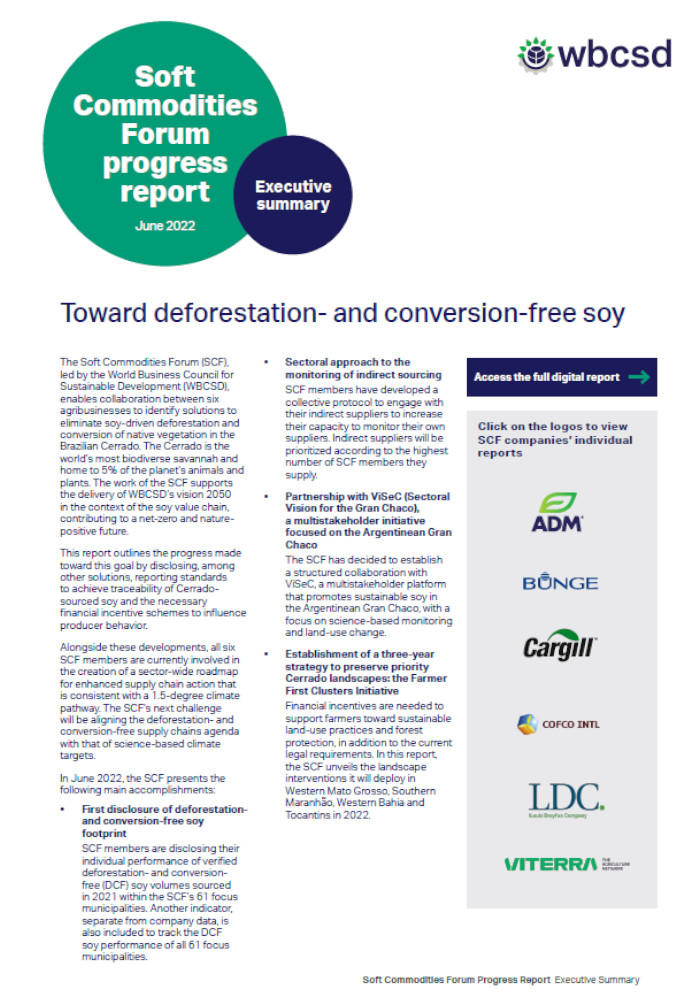
The Soft Commodities Forum (SCF), led by the World Business Council for Sustainable Development (WBCSD), enables collaboration between six agribusinesses to identify solutions to eliminate soy-driven deforestation and conversion of native vegetation in the Brazilian Cerrado. The Cerrado is the world’s most biodiverse savannah and home to 5% of the planet’s animals and plants. The work of the SCF supports the delivery of WBCSD’s vision 2050 in the context of the soy value chain, contributing to a net-zero and nature-positive future.
The June 2022 report outlines the progress made toward this goal by disclosing, among other solutions, reporting standards to achieve traceability of Cerrado-sourced soy and the necessary financial incentive schemes to influence producer behavior.
Alongside these developments, all six SCF members are currently involved in the creation of a sector-wide roadmap for enhanced supply chain action that is consistent with a 1.5-degree climate pathway. The SCF's next challenge will be aligning the deforestation- and conversion-free supply chains agenda with that of science-based climate targets.
The SCF June 2022 report presents the following main accomplishments:
• First disclosure of deforestation- and conversion-free soy footprint
SCF members are disclosing their individual performance of verified deforestation- and conversion-free (DCF) soy volumes sourced in 2021 within the SCF’s 61 focus municipalities. Another indicator, separate from company data, is also included to track the DCF soy performance of all 61 focus municipalities.
• Sectoral approach to the monitoring of indirect sourcing
SCF members have developed a collective protocol to engage with their indirect suppliers to increase their capacity to monitor their own suppliers. Indirect suppliers will be prioritized according to the highest number of SCF members they supply.
• Partnership with ViSeC (Sectoral Vision for the Gran Chaco), a multistakeholder initiative focused on the Argentinean Gran Chaco
The SCF has decided to establish a structured collaboration with ViSeC, a multistakeholder platform that promotes sustainable soy in the Argentinean Gran Chaco, with a focus on science-based monitoring and land-use change.
• Establishment of a three-year strategy to preserve priority Cerrado landscapes: the Farmer First Clusters Initiative
Financial incentives are needed to support farmers toward sustainable land-use practices and forest protection, in addition to the current legal requirements. In this report, the SCF unveils the landscape interventions it will deploy in Western Mato Grosso, Southern Maranhão, Western Bahia and Tocantins in 2022.
Download the SCF Executive Summary June 2022:

